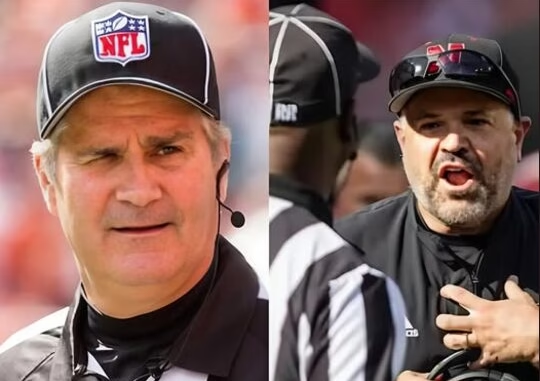
In an unprecedented move that has rocked both the NCAA and football fans alike, Carl Pagaelli, president of the National Football Referees Association (NFLRA), issued a shocking “seven-word” message along with a staggering $500,000 payout, publicly criticizing Nebraska Cornhuskers head coach Matt Rhule for his repeated and vehement criticisms of NCAA referees following his team’s humiliating 13-10 loss to lowa.
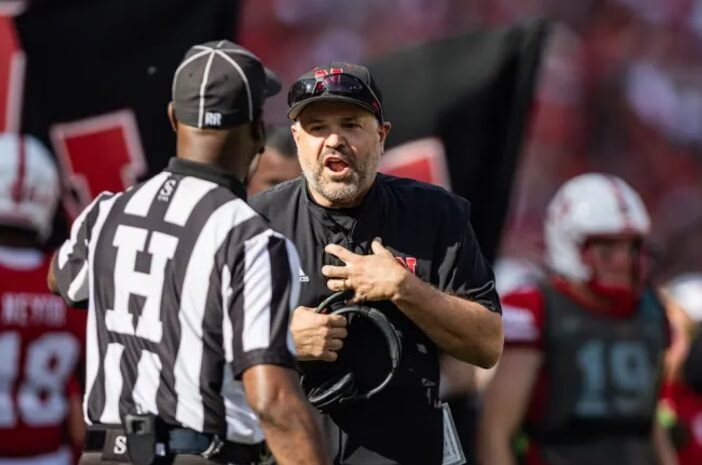
The fallout from Rhule’s comments has stirred up a fierce debate across college football. Fans, pundits, and even rival coaches are weighing in on the growing power of officiating bodies and the consequences of openly challenging their authority. Was Rhule justified in his postgame remarks, or is the NFLRA sending a dangerous message about suppressing criticism of referees?
The lowa-Nebraska Game Turn of Events
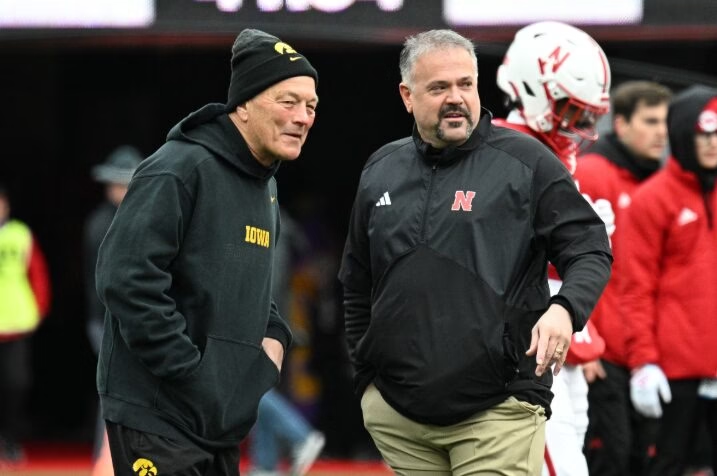
On Friday, the lowa Hawkeyes emerged victorious in a bitter rivalry game, defeating Nebraska with a last-second 53-yard field goal. However, the game wasn’t just about the scoreline-it was marred by controversy both on and off the field. lowa linebacker Jay Higgins and Nick Jackson publicly accused Rhule and his team of disrespecting lowa’s pregame routine, including Rhule allegedly walking through lowa’s warmups. More damning, however, was the Nebraska captains’ refusal to shake hands with lowa’s players during the pregame coin toss.
“We immediately knew what type of game this was,” Higgins said, referring to the tension and lack of sportsmanship shown by Nebraska’s leadership. Despite entering halftime with a 10-0 lead, Nebraska fell apart in the second half, allowing lowa to score 13 unanswered points.a
The real controversy, though, came after the game. Higgins made a beeline for Rhule at midfield to offer a handshake, which Rhule reportedly refused to accept. When asked about the incident, Higgins fired back, “Come to lowa and be a Hawk, see the difference.” This exchange set the stage for what would become a series of tense and highly publicized events.
Rhule’s Criticism of Referees
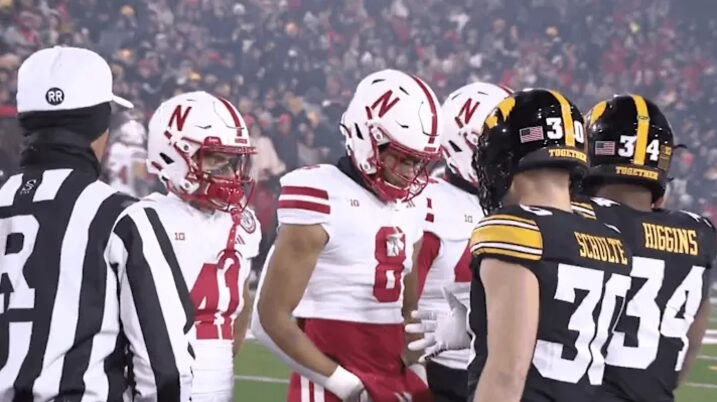
Despite holding a commanding lead and dominating lowa in nearly every statistical category, Nebraska ultimately fell victim to a devastating second-half collapse. The loss was compounded by what many, including Rhule, claimed were questionable referee calls. Rhule, known for his fiery demeanor, didn’t mince words when discussing his team’s fate after the loss, especially the officiating.
“This isn’t the first time we’ve been screwed by bad calls,” Rhule said in his postgame interview, visibly frustrated. “We were robbed of that game. I’m sick of this. We deserved to win, and it’s not right when the referees dictate the outcome.”
It’s not the first time that Rhule’s team has faced criticism due to controversial officiating. Back in September, Nebraska found itself on the wrong side of several disputed calls during an overtime loss to Illinois. The constant theme? An apparent inconsistency in how games are officiated, especially in high-pressure moments.
The NFLRA’s $500,000 Payback
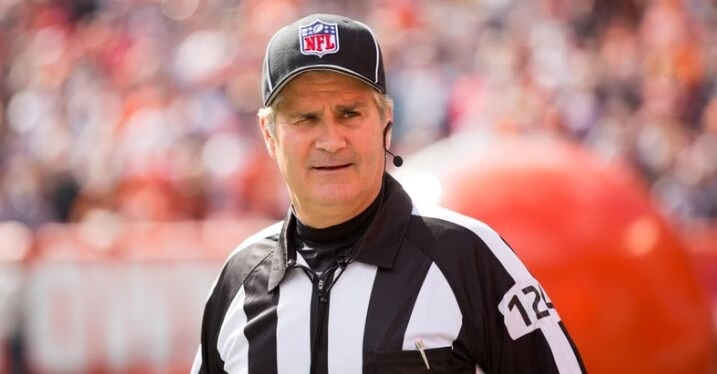
In response to Rhule’s comments, Carl Pagaelli, president of the NFLRA, issued a stunningly aggressive move: a public condemnation of Rhule’s behavior and a $500,000 payout to make an example of the Nebraska head coach. The seven-word message accompanying the payout was equally direct: “Criticism of officials is unacceptable, especially from coaches.”
This move has sparked an outcry from fans and coaches alike, many of whom are questioning the increasing influence and power of officiating bodies. The backlash against Pagaelli’s decision has been swift, with many pointing out that while referees play a crucial role in ensuring the integrity of the game, they must also be held accountable for their own mistakes and inconsistencies.
Critics argue that this $500,000 payout and the accompanying reprimand are not just a punishment for Rhule, but a warning to other coaches about speaking out against questionable officiating. The underlying message seems to be that any coach who dares to criticize officials publicly will face severe financial repercussions and damage to their reputation.
The Bigger Picture: Is This the End of Free Speech in College Football?
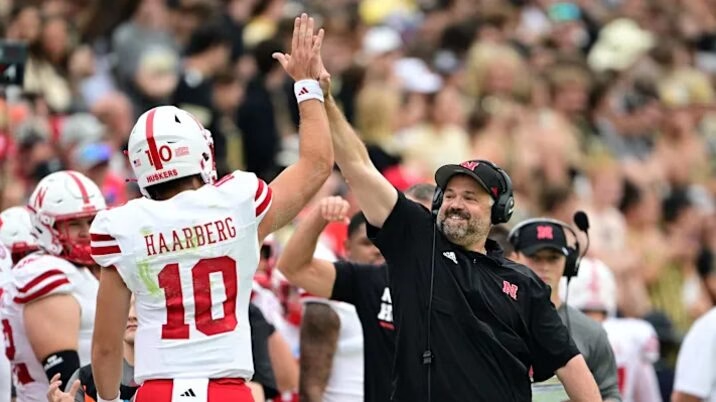
At the heart of the controversy is the question of whether coaches, players, and fans should be silenced when it comes to discussing the impact of officiating on games. Pagaelli’s message to Rhule sends a chilling signal to all involved in the sport-referees, while human and prone to mistakes, are beyond reproach, and anyone who dares to call them out will face consequences.
But is this the right message to send? Shouldn’t there be a balance between protecting the integrity of officials and allowing coaches to express legitimate concerns when they feel their teams are being treated unfairly?
This issue touches on a broader problem within the sport: the increasing commercialization of college football. As the sport becomes more lucrative and high-profile, the stakes for everyone involved grow higher. The pressure on coaches to win, the scrutiny of officials, and the immense emotional investment of fans all contribute to an environment where accusations of bias, poor judgment, or corruption are becoming more соттоп.
In the case of Rhule’s criticisms, many Nebraska fans believe the officials played a significant role in the team’s second-half collapse, citing numerous questionable calls. While Rhule’s frustration may have crossed a line in some eyes, is it really fair to punish him for standing up for his team in the face of perceived injustice?
What’s Next For Matt Rhule and College Football ?
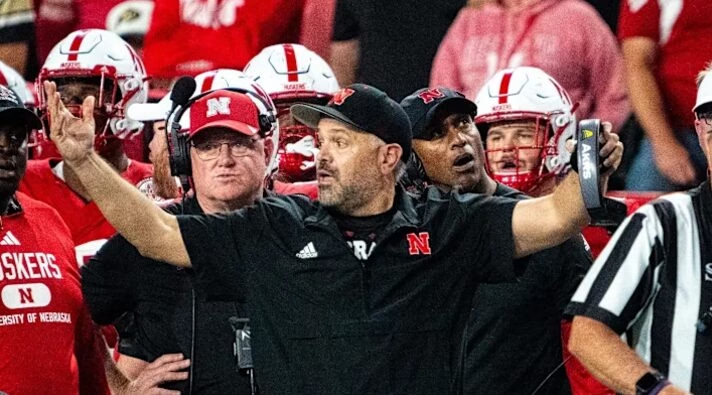
The repercussions of this incident are far-reaching. For Rhule, the $500,000 payout may be just the beginning. Public opinion is divided, with some calling for greater accountability from both coaches and referees, while others fear that Pagaelli’s decision will only serve to silence dissent and further entrench the power of officiating bodies in college football.
As this controversy continues to unfold, one thing is clear: college football is entering a new era where the influence of referees may be stronger than ever, and coaches who challenge that power will do so at their own peril. The question remains-will this lead to better, more consistent officiating, or will it simply lead to a more controlled, less transparent game where the voices of those most invested in the outcome are silenced? Only time will tell.

I totally agree with Rhule, this is the worst officiating I have even seen and the BIG 10 should be embarrassed by it. A fine by the national officials is like a communist ruling, if you don’t agree with us you should be punished